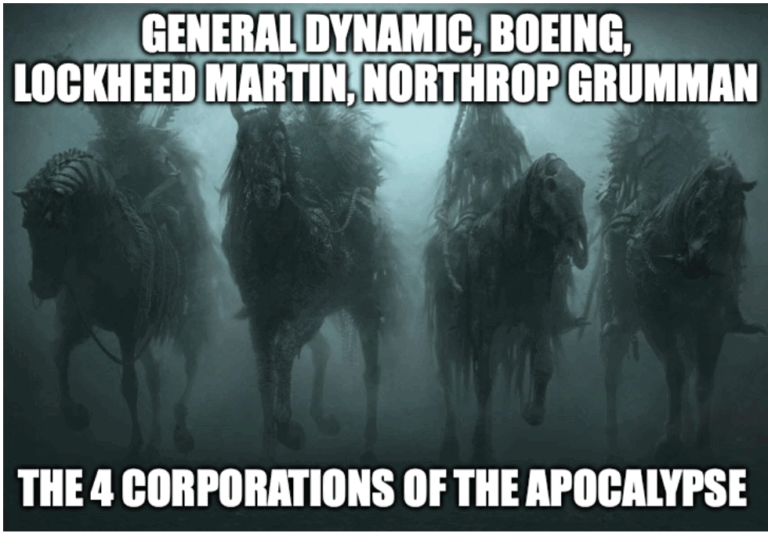The New Zealand dairy cooperative Fonterra has agreed to sell its “consumer products” operations to French global dairy company Lactalis.
In response New Zealand political leaders (with the exception of Winston Peters) have been quick to assert “It is the shareholders’ right to decide” and offered no further comment. Christopher Luxon, Chris Hipkins and David Seymour all agree on that much.
Yet the statement that “It is the shareholders’ right to decide” is a self-evident legal fact which really goes without saying. Does it mean that the rest of us should not have or express a view on the matter?
Some have tried to argue that, but all the indications are that public opinion is strongly opposed to the Lactalis deal.
Every New Zealander is a “stakeholder” in the dairy industry because it generates such a large share of the national income. It directly employs tens of thousands, indirectly provides employment to thousands more and adds a significant amount to government tax revenues. If it makes decisions which serve the short term interests of shareholders but result in reduced income, employment and tax revenues over the longer term, then New Zealanders as a whole will suffer.
We may not have the right to decide, but we do have the right to know what is going on and the right to offer judgement. As citizens and human beings we want to know about the things that will or could seriously impact on our lives. That is not just out of idle curiosity. Neither is it a case of sticking our noses into someone else’s business. Fonterra is a business monopoly created by an act of the New Zealand parliament. It is not like a corner store that will go out of business if it makes bad decisions, only to be replaced by a smarter operator a fortnight later.
If Fonterra’s shareholders make decisions that adversely impact the national economy then the consequences may be serious for all of us.
Our right to know is also a fundamental principle of capitalist ideology, in which everything depends on the market and therefore everything must be known in the market. This is the basis of the free market principle of “perfect knowledge” which is the antithesis of the claim to “commercial confidentiality” so often invoked by capitalist governments and monopolistic corporations to keep “the market” (that is, in this context, the people) in a state of deep ignorance.
To be frank, we actually know very little about the Fonterra/Lactalis deal, and we have been told even less by Fonterra. So let’s take a look at what we do know.
The media are telling us that Fonterra has sold its “brands” or its “consumer business”. In reality the sale appears to affect what is known as the “Mainland Group” and to comprise a number of businesses which own the brands Mainland, Anchor, Kapiti, Perfect Italiano, Western Star, Ratthi, Chesdale, Fernleaf, Anlene, and Anmum among others and 16 commercial sites (some say 17 and others say 18, probably due to formal separation of more or less contiguous sites) in Australia (Cobden, Stanhope, Darnum, Spreyton, Wynyard, Bayswater, Campbellfield, Tullamarine 1, Tullamarine 2), New Zealand (Takanini Auckland, Bridge Street Eltham and Makomako Rd Palmerston North), Sri-Lanka (Biyagama) , Malaysia (Dairymas and Susumas), Indonesia (Cikarang) and Saudi Arabia (Dammam).
The media has made much of the “iconic brands” like Anchor and Mainland, but in reality they are just brands, and the role of brands in capitalist economics are vastly over-rated by that relatively small group of people whose income derives from making or exploiting brand power. Brands come and brands go, and while New Zealand householders might complain about the price of a block of butter, they will not be too fussed over whether its wrapping is adorned with an anchor or a fern leaf.
“Manufacturing facilities” (“sites” or “factories”) need to be taken more seriously because they employ real people and produce real goods. As New Zealanders we should be primarily concerned with the three New Zealand production sites and the plans for their future. The overseas sites are of interest mainly through their potential to take production away from the three New Zealand sites. Is that a realistic possibility? To be frank, I would have to say “I don’t know”. I just assume that Lactalis could produce the commodities of its New Zealand factories in its other countries of operation either from local raw milk supplies or from dried product or a combination of both. It would only continue production in New Zealand over the long term if the New Zealand factories had a competitive advantage in the production of value-added dairy products. That would be the case if the New Zealand inputs (labour, plant land and buildings, energy and raw materials) were cheaper or the economy of scale was greater in New Zealand than elsewhere. Yet that seems unlikely. New Zealand does not have industrial economy of scale, and it does not have cheap inputs compared with, say, Australia. It is the challenge posed by the Australian operations that should most concern New Zealand dairy workers and Lactalis has indicated that as a result of the Fonterra deal “4300 employees will strengthen Lactalis Australia workforce”. Evidently there will be no “Lactalis New Zealand” let alone a “Lactalis Aotearoa”. The Fonterra factories will have the same status as branches of ANZ or Westpac, Woolworths or Bunnings and they will be run by Australian managers in the interests of the French owners – more or less. Fonterra does not reveal the number employed at its Takanini, Eltham and Palmerston North sites, but presumably these are the numbers to be added to “Lactalis Australia workforce”. Will they remain in New Zealand, or will those workers and their jobs be physically transported to Australia? No one is saying.
Is Lactalis legally obliged to maintain production in New Zealand?
The short answer is “Almost certainly not” because such a condition of sale would have resulted in a massive discount being applied to the purchase price with no advantage to the seller, Fonterra.
Is Lactalis practically obliged to maintain production in New Zealand?
Only if the economics of maintaining production in New Zealand are better than the economics of shifting plant, key workers and production to, say, Australia and selling off the land and buildings in New Zealand.
Isn’t Lactalis obliged to continue buying raw milk off Fonterra, and doesn’t that mean it has to continue production of dairy products in New Zealand?
Lactalis presumably has other options. For example it could buy raw milk off Fonterra and contract Fonterra or some other dairy powder producer to convert it to powder.
Fonterra has been less than candid about its agreements with Lactalis. It says “Fonterra will continue to supply raw milk, dairy ingredients and products to the divested businesses under long-term supply agreements”.
The Raw Milk Supply Agreement is for Fonterra to supply 350 million litres of milk per annum to Lactalis for a minimum period of ten years from the date of agreement. The price is based on Fonterra’s farmgate milk price. But we are not told whether Lactalis must accept that volume of product, or whether Fonterra must supply that volume, or whether one or the other party can withdraw from or amend that arrangement. Presumably Lactalis is obliged to accept that volume of product for the next ten years if required to do so by Fonterra, but what they do with that raw milk would be their own business. The Raw Milk Supply agreement covers only 7% of Fonterra production and reportedly adds 12% to Lactalis Asia Pacific and Europe, Middle East and Africa milk supply. With those numbers, neither Lactalis nor Fonterra need feel committed to added-value production in New Zealand. Fonterra has already made the decision to opt out of the business. Could not Lactalis follow suit?
Should we trust Lactalis to “do the right thing”?
Recent history suggests otherwise. When Lactalis bought up Italian dairy companies in 2023 it closed factories in Reggio Calabria and Tuscany.
Wikipedia also notes “In August 2016, French farmers blockaded the company’s headquarters in Laval, protesting what they saw as price fixing.
In 2020 allegations were made that 38 of Lactalis’s production plants in France had breached environmental regulations, and had been doing so for a number of years…
In July 2023, Lactalis Australia was fined A$950,000 by the Federal Court for breaching the Dairy Code of Conduct in 2020…
In February 2024, the Spanish … fined Lactalis 11.69 million euros for forming a cartel with other milk companies to avoid competition when buying milk from Spanish farmers between 2000 and 2013…
In February 2024, police officers .. raided the offices of Lactalis as well as its CEO’s private mansion on suspicion of tax evasion. Lactalis is the target of a preliminary investigation… into aggravated tax fraud and aggravated laundering of tax fraud”. Tax fraud, price fixing, and environmental offences may not be unusual among global corporations, but these cases do indicate that Lactalis is no knight in shining armour.
Was the sale backed by a good business case?
The principle argument for divesting the Mainland Group seems to be that the Group has a lower rate of return on capital than the milk powder business.
Yet a business which disposed of its least profitable product lines would eventually end up with just one product to sell or no business at all. (Although not a direct parallel, consider the likely fate of a supermarket which stopped selling bread). This is what I categorise as “the first folly” of Fonterra and its shareholders.
Pursuing the highest rate of profit (“rate of return to capital”) to the exclusion of other factors (broadly, strategic factors, which includes social and public good concerns) inevitably leads to a narrowing of the range of production by specific enterprises, localities and regions. The changes in the New Zealand forest industry, which has certain similarities to the New Zealand dairy industry, over the past half century demonstrate the consequences of seeking to maximise the rate of return to capital “across the board”. In forestry, radiata pine produces a higher rate of return to investment than any other species of production forestry tree and it does so in almost all localities. Therefore, commercial growers plant radiata pine to the exclusion of almost every other species (including species which can return higher revenues per hectare per annum, but that anomaly is another story). It goes further than that. Radiata pine grown on a minimal tending regime producing timber of low to average quality generates a higher rate of return than pruned and thinned radiata pine which produces high quality “clearwood” logs (free of knots) and which can also return higher revenues per hectare per annum than the minimal tending regime. However minimal tending becomes the rule throughout the country and a single product class tailored to a single market becomes the dominant commodity. That has consequences for the domestic processing industry. New Zealand used to have many hundreds of small sawmills which profitably processed high quality sawlogs, both native and exotic, but cannot effectively compete in processing low quality logs. The industry switch to low quality logs put these mills out of business, leaving only a handful of large integrated saw and pulp mills still working in New Zealand. These integrated mills are themselves now closing down, due to New Zealand’s energy shortage which is itself a result of investors chasing the highest possible rate of return on capital. Forestry is foreign owned and produces low quality logs for export to processors in China, Japan, Korea and India among others.
The dairy industry has been through a similar process of capital concentration. Over wide areas of the country the return to capital from dairy farming has been higher than the return from sheep and beef cattle farming or cropping. Therefore dairy has become dominant in the landscape over much of the country. At the same time scores of small dairy factories have closed, to be replaced by mega-factories primarily producing milk powder for export, because milk powder production appears to provide a higher rate of return on capital than butter or cheese production. For both dairy and forestry the ostensibly most profitable course is production of a single relatively low value commodity for export. The advocates of pure market economic theory have no problem with that. However they cannot deny the consequences, which are that there is a loss of production (GDP), a loss of employment, and an increased level of risk to an economy that has placed “all its eggs in one basket”. Those risks can be categorised as market risks (falling demand), reputational risks (such as those posed by the Sanlu scandal, the Fonterra botulism scare, or concerns over sustainability or environmental pollution) and adverse natural events (drought, floods, storms and disease). As the scope of production narrows through specialisation, the impact of such adverse events increases. Specialisation and the risks inherent in specialisation are normal economic phenomena which tend to even out within a wide and diverse economy, because when one specialty strikes trouble, other kinds of production can take up the slack and governments can also intervene to assist that process. But New Zealand’s energy crisis has shown that the particular doctrines and the institutional model of the New Zealand state preclude it from intervening constructively in such situations. “Hard landings” have become the rule for the likes of the timber industry, and they could also affect the energy intensive milk powder industry. For practical reasons, milk powder processing cannot be done off shore, and any added costs of production will have to be borne by the milk producers themselves, the very farmers who have just voted to sell off domestic butter and cheese production.
The second folly of Fonterra was to dispense with the security (risk management) and intelligence advantages of a vertically and/or horizontally integrated business. It is strange that farmers who generations ago felt the need to have some control over the market for their produce and some involvement in the processing of their product should now be oblivious to such considerations. Why, then, stop at divesting the Mainland Group? Why not also sell off Fonterra itself? The honest answer would be that Fonterra’s farmer shareholders know very well that if they did not own Fonterra, they would be at the mercy of a monopsonist raw milk processor. What they fail to appreciate is that having no control over the further processing of their milk will leave them at the mercy of companies like Lactalis. They may not see that risk because they believe that the global market for dairy products truly is a free and competitive market beyond the control of any large player or cartel. Even if that may be the case currently, there is no guarantee that it will remain the case, and even by their own action they have now marginally reduced competition in the global market place. Fonterra’s farmers have shown the same touching faith in the benevolence of the global market as successive New Zealand governments who never imagined the possibility of a Donald Trump. The Mainland Group was not huge relative to Fonterra as a whole. Therefore it would have made sense to retain it as a foot in the door of the “consumer products” markets, and to get practical insight into those markets.
The third folly of Fonterra is a short term perspective, which is a recognised characteristic of under-capitalised colonialist economies which rely first on the unsustainable extraction of natural wealth (whaling, sealing, gold mining, native forest logging) and then seek out other ways to acquire wealth from minimal capital investment, such as pastoral farming and short rotation forestry. (Short term thinking has psychological links to the obsessive regard to rate of return on capital noted above). When the Fonterra supply deals with Lactalis expire, in three and ten years time, Lactalis will be free to use European and other suppliers to meet its base load demand for raw ingredients, letting Fonterra top up supply in times of high demand, and thus leaving Fonterra vulnerable to swings in the market. The forest industry copes with volatile markets because trees can be left in the ground to keep on growing when the demand from Asia drops, but the cows have to be milked every morning, and the going price taken, regardless of what is happening in the global marketplace.
The fourth folly is failing to see beyond one’s immediate business interests. Dairy farmers indirectly benefit from processing in New Zealand. Their sons, daughters, partners and siblings work in the cheese and dairy factories, and those factories also provide the tax revenue upon which modern farms depend for transport and communication networks, bio-security, education, research, health services and so on. My guess is that the agreement with Lactalis, while committing Lactalis to use Fonterra ingredients for ten years would not specify where the processing would be done. If that is the case factories in New Zealand could be closing in less than a decade from now and production could progressively shift to Australia or elsewhere. That would have repercussions not just for Lactalis New Zealand employees but for Fonterra’s own remaining milk powder production (which cannot shift to Australia). Modern industries rely on many specialist engineering services that demand economy of scale, which is one reason why the closure of the Marsden Point oil refinery negatively impacted the New Zealand dairy industry. Every industry that closes makes it harder for those remaining to survive. There comes a tipping point beyond which it is impossible to sustain a modern industrial economy, and New Zealand is moving ever closer to that point.
Let’s go back to the theory that “when one specialty strikes trouble, other kinds of production can take up the slack and governments can intervene to assist that process”. That is, if cheese and butter production is shut down, or the raw milk industry runs into trouble, the inputs to those industries (especially land and labour) will be re-assigned to the production of other commodities. As I pointed out above, that is all very well when one has an economy more diverse than New Zealand’s. Well, the global economy is diverse, is it not? If demand for milk powder falls over, won’t something take its place? Of course it will, and the global economy will take it all in its stride. But here is the catch: in the global economy, the nation of New Zealand is just like a single business or a single working family, and if it is hit hard, there is no global government ready to step in and ease our pain. We will be on our own. Dairy farmers and all. There will be little sympathy and no help from the centres of global capital. It is not a prospect that should be viewed in a cavalier fashion.
If New Zealand continues in the course set by the forest and dairy industries it cannot survive even as a nominally independent state. The end result of domestic disinvestment on this scale must be the abandonment of political sovereignty. The New Zealand state already declares itself to be incapable of playing an active role in the economy. It has explicitly declared that is a task that can only be undertaken by foreign capital. When as a consequence of its economic policies it declares itself unable to manage New Zealand’s social problems, a point we may have already reached, then it will have no option but to rely on foreign states to take on the job of government. After a historically brief period from 1947 to 1984, during which the New Zealand state inclined towards independence, we are now seeing the rapid recolonization of the New Zealand economy and state. New Zealand’s political independence is evaporating as its productive capacity is destroyed.
We should not be heaping blame on Fonterra’s farmers. The nation (more correctly the colonialist political establishment) is to blame for perpetrating the false and simplistic economic doctrines of successive New Zealand governments and by establishing an overpaid and generally incompetent managerial class (of which the colonialist politicians themselves are a formally recognized component) to implement those doctrines. Politicians have purchased a fallacy and sold it to the public. Managers have then applied it, and voters have permitted it to triumph over common sense.
The sale of Mainland Group would suit Fonterra’s senior managers. Producing a narrow range of bulk commodities which are then put out to auction on the global market is easier than all the work that goes into innovating, producing and marketing a diverse range of consumer goods. Selling Mainland will make the lives of Fonterra’s top echelon simpler, and their salaries will increase accordingly, just as the sale of state assets made the lives of politicians easier and their roles more lucrative. Professional managers understand where their own interests lie, and they are skilled at finding the arguments to persuade other stake holders that the interests of the business will also be served by changes that suit the self-interests of managers.
Just last week I successfully concluded a legal case against a farmer rural supplies cooperative. It gave me no pleasure to do so. The very highly remunerated management of the cooperative had made decisions which were contrary to the interests of the members and which violated New Zealand law. The directors had been bamboozled by the managers and the shareholding members (many of whom could also be Fonterra shareholders) were left in profound ignorance. The same probably holds true in Fonterra, and it is certainly true of the body politic. Awakening will only come as a result of a shock to the system greater than anything that can be administered by a court of law.
Winston Peters, who is an utterly unprincipled but never-the-less perceptive politician, described the Fonterra sale as a “sugar hit”. That is true not just for the Fonterra farmers and managers who will use the payment extend their farms, upgrade technology, pay off debt, buy a new car or take the spouse on a cruise . It is also the case for government. The $4.2 billion purchase price will help to shore up the New Zealand dollar and provide a small boost to GDP, but these benefits will be small and fleeting. It can only make sense to a government which is resigned to the loss of economic and political sovereignty.
Geoff Fischer is a forestry worker residing at Manaia, Te Tara-o-te-ika a-Maui.








Mr. Nobody you are well named Sir.
Isn’t it wonderful that Fonterra provides so many employment opportunities.
WTF are you talking about – first cab off the rank will be Lactalis shutting down all local manufacturing and bulk shipping their cheap shit in from overseas and slappin an Anchor label on it – dumb fucking hobbit
You had me until ‘reduced government revenue’. How much tax does Fonterra actually pay? Because you can be sure that they’re using every dodge in the book to avoid paying a fair share. So is it going to make that much difference?
The workers in Fonterra processing facilities all pay income tax and GST. Of course the capital gains from the Lactalis sale are tax free, and I am sure that, like all corporates, Fonterra has ways of minimizing its tax bill. Capital avoids taxation, but workers in employment still pay tax. Workers out of employment are a drain on tax revenues. Thus there is a net negative effect on the government accounts from putting people out of work.
The Bullvine
13 November at 04:39
·
Lactalis just fired 270 French dairy families yesterday. https://bit.ly/4hWB8pl
The same Lactalis that’s spending €11 BILLION on new processing plants.
Let that sink in. The world’s largest dairy company—processes milk in 51 countries, owns 250 plants, makes Président cheese and Parmalat milk—just told 270 farm families their milk isn’t worth the diesel to collect it.
But here’s what should scare every dairy farmer from Wisconsin to New Zealand:
They’re not broke. They’re restructuring the entire industry.
Their numbers tell the real story:
→ Profit margin on YOUR commodity milk: 1.2%
→ Profit margin on their premium yogurt: 20%
→ Investment in NEW processing: €11 billion
→ Investment in farm support: €0
Those 270 French families? Some had been shipping to Lactalis for three generations. One farmer near Normandy told French media his grandfather started selling to them in 1947. Now his son has 18 months to “find alternative arrangements.”
This is the template every processor is copying:
I just got off the phone with a contact at another major processor (can’t name them yet). They’re running THE EXACT SAME PLAYBOOK:
Cut small farms under 500 cows
Demand 4.2% minimum butterfat
Lock in mega-dairies with 10-year contracts
Invest everything in component extraction
Remember when Danone dropped 89 organic farms in 2022?
Remember when Saputo cut 200 suppliers in 2021?
Remember when Dean Foods went bankrupt in 2019?
This. Is. The. Pattern.
The math is brutal and it’s global:
France: Only farms over 80 cows surviving
Netherlands: 30% of dairies closing by 2030
Canada: Quota system can’t save small farms anymore
USA: 89% of small dairies unprofitable
Australia: Processor consolidation accelerating
While Lactalis cuts farm families, they’re partnering with precision fermentation companies. By 2030, they’ll be making “dairy” proteins in steel tanks for 1/5 the cost.
Your milk won’t just be worthless. It’ll be obsolete.
Three things happening RIGHT NOW:
Component Segregation: Processors are building plants that ONLY take high-component milk. If you’re shipping 3.6% butterfat, you’re already on the cut list.
Scale Elimination: That 270 farms Lactalis cut? Average size was 280 cows. Every processor has the same spreadsheet with YOUR name and cow count.
Fermentation Preparation: Lactalis, Fonterra, Danone—they’re ALL investing in fermentation. They’re planning for when they don’t need cows at all.
One of those French farmers posted this on Twitter yesterday (translated): “My father survived two milk crises. My grandfather survived World War II. I can’t survive Lactalis.”
That hit me hard.
Because it’s not about working harder. It’s not about being a better farmer. It’s about multinational corporations deciding your family legacy isn’t profitable enough.
You’ve got maybe 18 months before your processor makes the same announcement. Not because milk prices are low. Not because there’s too much supply. But because they can make more money WITHOUT YOU.
What’s your plan? Because “hoping it doesn’t happen here” isn’t working for those 270 French families today.
And please, don’t tell me “it’s different here.” That’s what French farmers said too.
Share this if you think farmers deserve to know what’s coming
Scary stuff, Who needs horror movies? Thanx Christopher.
Thank you Christopher.
We can only speculate about what lies ahead, but it is vitally important for us to know what is happening now, and what has happened over recent time. The New Zealand media has simply parroted the line coming out of Fonterra management and dismally failed to critique the case for the Lactalis sale, in much the same way that sees its role in reporting the Gaza genocide as being to uncritically repeat IDF disinformation.
Fortunately we have people like yourself to help fill the information vacuum left by the official media.
You gordon should be forever grateful to the farmers of New Zealand without whom we would be third world.
Thanks to this government we’re pretty much Third World now.
That’s silly GS indeed inane.
This will be the last hurrah for dairy famers so I would suggest they pay down as much debt as they can now .
When will it dawn that branded retail consumer products are not the only way to add value? Get off the grass and bypass the butter.
It’s interesting how most of our political leaders have been so quick to wash their hands of this decision. The idea that it’s simply the shareholders’ right seems a bit oversimplified, especially when the sale could have such widespread economic and social consequences. There needs to be more open discussion about the broader implications for New Zealand’s future.
that would be communistic if the govt stepped in and the farmers would be rampaging in the street as they will when in 10 years time they are just peasant farmers as they re in Europe .
More generally, neo-liberalism postulates the idea that individuals can make decisions which affect themselves only, or, if there is an effect on others, it is necessarily beneficial, at least “in the long run”.
That is not true, it was never true, and it becomes less and less true by the day as human beings are increasingly caught up in a vast global web of social production.
That might be thought relevant only to liberals of the bleeding heart variety except for this simple fact: the pain that you wittingly or unwittingly inflict on others comes back to bite you in the end. When the dairy factory closes and workers go on the dole their kids go wild, your daughter gets bullied at school because she still has nice stuff, and your quad bike gets nicked out of the yard by a bored teenager who is not in work and not in education. Even if the laid off workers stay honest and go to church every Sunday, they don’t have the money to buy your second hand Ford Ranger when you want to upgrade to a new one. So you suffer, maybe because there are all those bastards out there, or maybe because you agreed to selling off the dairy factory to a corporation domiciled on the other side of the world.
The issues involved escape most of the commenters,who obviously have no idea what they are talking about.
The issues involved escape only you Bob obviously you have no idea what you are talking about.
An educated person am I CG. I most certainly know what I’m talking about.
If this is your worstvi would hate to see the best .
The share holders could not see past the tax free lolly scramble .An easy 400k dropped in to the bank account looks good for the week or so it remains there .A lot will be taken by banks to pay over draughts and loan arrears .A large local farmer was taken over and sold by the bank last year ,tey had been in business for decades but were still insolvent .That being the case this short term sugar rush might well save a few that are in the same boat .
What will they sell next time they want a sugar rush and by the look of recent developments the selling price is sliding as other countries have ramped up supply .
Totally agree, once you lose control…price takers not price makers.
It all appears to be all too hard for the overpaid executives, much easier to stick with bulk milk powder & not have to innovate & add value.
We haven’t really advanced much since the Dunedin sailed in 1882 with frozen mutton!
That’s complete rubbish F W E
Your ignorance is on display.
Why do you have two different icons on this post Bob1st?
No idea.
enjoy your Argentinian butter blended in Vietnam – better get an electric can opener for those gnarly old arthritic hands old chap or be prepared to pay for the artisan boutique stuff because why would a global company keep operations going in this expensive shithole
Simple reason for the sale. Fonterra does not have the finances to make the brands global. Not going global makes the brands nonviable (no distribution).
So sell off the brands. Make some money for the shareholders whilst they still hold some value. Long term the brands have a diminishing valuation.
It is easy to say keep the brands but much harder to have a notion how much time/effort/capital is required to achieve distribution against strong (and very large – think Nestle) competitors who have built up their distribution of a hundred years. AFFCO was an example of what trying to create international distribution channels that fail.
Add that New Zealand needs to add a shipping cost and the margin numbers start getting pretty tight.
The answer to lower local costs is local farming coop that have a dairy factory to make local produce (think Tatau, Westland, etc.). Farmers don’t have to supply Fonterra, they are free to form their own coops and make local milk, cheese, butter, yoghurt, etc.